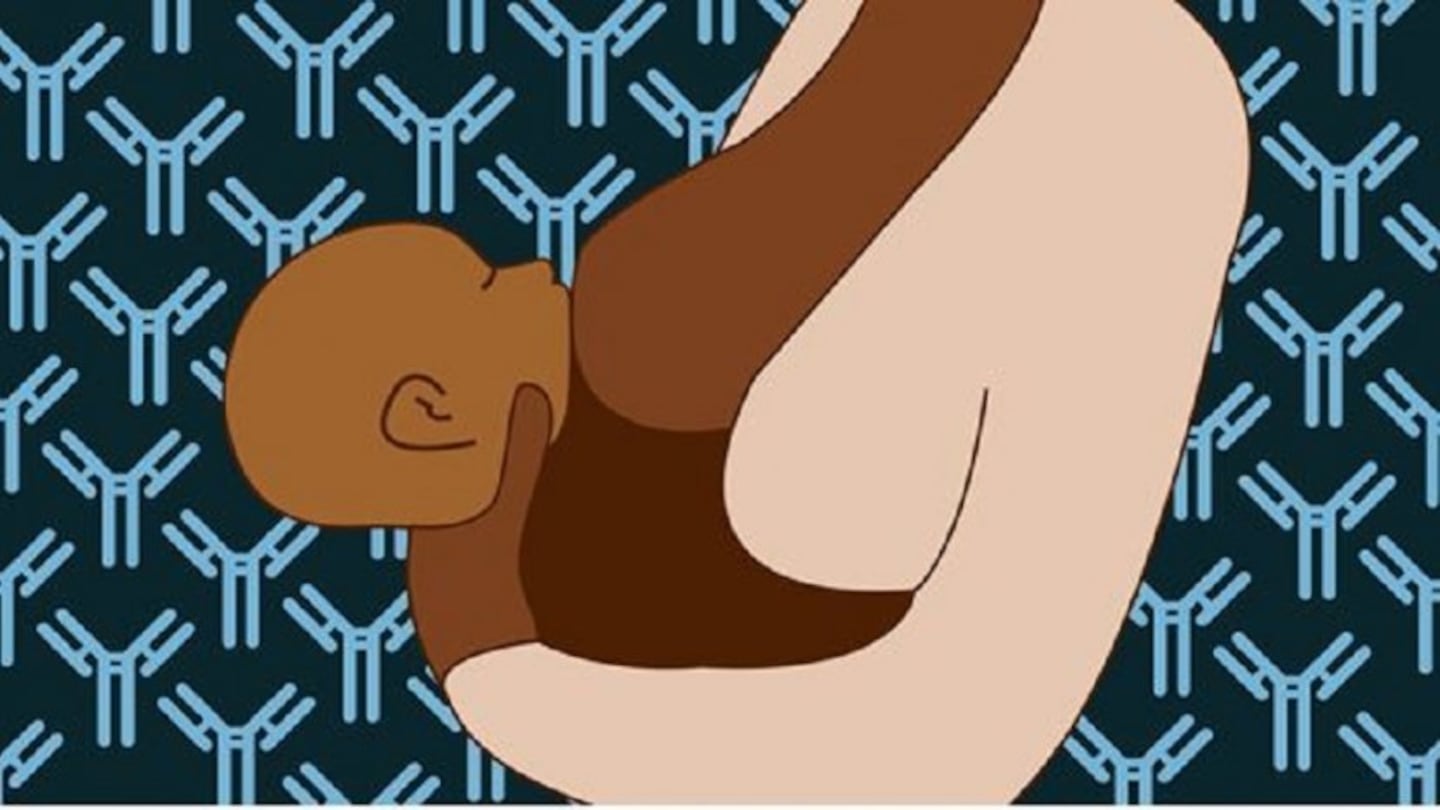We already know pregnant people can pass on Covid-fighting antibodies to their babies in utero, and research has found this is also the case when breastfeeding.
One study even found antibody levels in pregnant and lactating women after receiving the Covid-19 vaccine were "significantly higher" than levels from natural immunity after Covid-19 infection.
Transfer of immune protection, such as a baby receiving antibodies from its mother, is called passive immunity and it is actually quite common - it happens with both the influenza and whooping cough vaccines.
But the key question here is around safety. Is it safe for little babies, who aren’t yet approved to have the Pfizer Covid-19 vaccine, to receive Covid-fighting antibodies through breastmilk?
In short: yes.
Even though pregnant and lactating women were excluded from the initial clinical trials for the Covid-19 vaccine, there have since been a lot of studies about the immunogenicity of the vaccine in lactating women - in other words, how a vaccine provokes an immune response through breastmilk.
To start, let's look at the vaccine itself. One study collected 13 breastmilk samples from seven women before and up to 48 hours after their vaccine. None of the samples analysed showed any "detectable levels" of vaccine mRNA (messenger RNA) in any component of the milk.
This means that once vaccine is injected into the mother, it doesn't actually transfer to the baby, even if she's breastfeeding between four and 48 hours after receiving the jab. The mRNA in the vaccine is destroyed by our cells after first being used to teach our immune system how to respond to SARS-CoV-2, the virus that causes Covid-19.
On the topic of reactions, another study - the first large survey of vaccinated breastfeeding mums - looked at whether there were any adverse effects on breastfeeding after the jab. The findings indicated there was "minimal disruption of lactation". To be clear this was because the women included suffered symptoms post-jab and not because the Covid-19 vaccine affected the milk itself in any way.
Of the 4455 breastfeeding mums who were the total number included in the study, 77 - that’s 1.7 per cent - reported adverse impacts on breastfeeding after the jab - either as a direct impact to just breastfeeding, milk expression or to both activities. These women also reported more side effects than the rest of the cohort.
These side effects weren't out of the ordinary, but were similar to those identified in clinical trials - and included headaches, fatigue, muscle pain, injection site pain and so on. These sorts of symptoms, whether from the Covid-19 vaccine or other causes, can affect breastmilk production. And they're not a reason to stop breastfeeding. Milk supply should return to normal after the symptoms pass.
Of the wider cohort of breastfeeding mums in the study, the majority (90.1 per cent) reported no change in milk production.
The effect of the Covid-19 vaccine on breastfed children has also been explored, with some mothers in the above study reporting increased fussiness, sleepiness and a small amount of fever in their babies after the second dose. Researchers found this was more likely if the mum experienced symptoms, but overall, there were “minimal” adverse impacts on the breastfed child.
Where do the health authorities stand on this?
The World Health Organisation (WHO) updated its advice in June, 2021 based on "reassuring data" on the topic. It recommends the Pfizer Covid-19 vaccine be given to lactating people, just as it advises its use for other adults.
In Aotearoa New Zealand, the Ministry of Health sees no safety concerns with breastfeeding people getting the Pfizer Covid-19 jab.
Reporting disclosure statement: Associate Professor Helen Petousis-Harris, a vaccinologist from the University of Auckland’s department of general practice and primary health care, and Dr Mary Nowlan, the Immunisation Advisory Centre medical writer, provided expert advice for this post. It was reviewed by The Whole Truth: Covid-19 Vaccination expert panel member Dr Dianne Sika-Paotonu, an immunologist and senior lecturer in pathology and molecular medicine at the University of Otago



